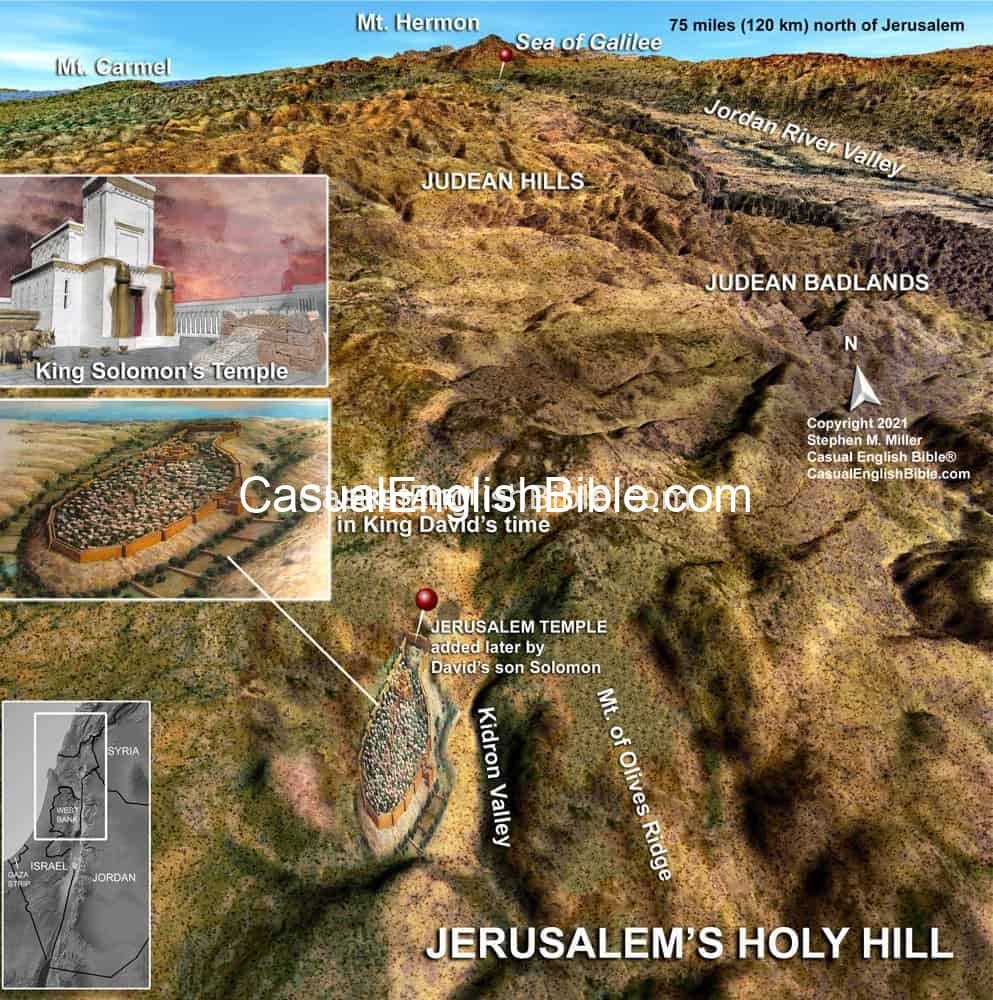Psalms 84
Homesick for God’s house
Welcome to God’s house
Note to music leader: use the gittith. [1] A psalm of Korah’s family. [2]
1LORD of all,What a lovely home you have in the Temple.
2I’m homesick [3] for that Temple and its courtyards.
Just the thought of it all makes me want to bust out singing.
3Sparrows make a home there. Swallows build nests for their hatchlings.
They make their homes near your altar,
My God and king and LORD of all.
4Everyone lucky enough to live in your house
Is happy indeed.
They’ll never stop singing your praises.
Instruments [4]
Happy trails to God
5People find happinessWhen they find their strength in you
And when they travel the roads to Jerusalem. [5]
6When they pass through dry Baca Valley [6]
The ground blossoms into spring.
Early rain falls in showers of blessing
Leaving footprint pools behind.
7The closer these travelers get to Jerusalem,
The stronger they become.
8Please hear my prayer, God of all.
Please listen to me, God of Jacob.
Instruments
One day with God
9You’re our shield of protection, God.Keep your eyes on your people.
10A day in a God’s house
Beats a thousand anywhere else.
I’d rather stand at attention in God’s doorway
Than relax in the mansions of the wicked.
11The LORD God protects us and keeps us strong.
He shows us kindness and respect.
He gives us everything that’s good to get
If we walk the path of goodness.
12LORD of all,
Anyone who trusts in you
Will never regret they did.
Footnotes
Scholars can only guess what the writer meant by gittith. Some guesses scholars offer: It could have been a type of instrument, like a unique style of a harp or a flute, perhaps named after the city where it was made. It might have been the name of a melody that fit the lyrics.
The subtitle wasn’t part of the original psalm. And Korah was a musical family in the tribe of Levi, one of the 12 tribes that made up the original nation of Israel. Levite families worked as priests and worship leaders and assistants for the Jewish nation.
This psalm sounds like a song people sang on the road to Jerusalem, to celebrate one of the Jewish holidays by worshiping at the Temple.
The word in the original language of Hebrew is selah. Bible scholars haven’t figured out what it means yet, so all we can do is guess. It could mean “pause for effect,” “instrumental interlude,” or “choir singing ‘Amen.’” We’re offering a guess instead of selah. Though selah might be the better way to go because it’s always correct, it’s also always incomprehensible. “Instruments” has a good chance of being wrong, but at least we convey the idea that the Hebrew word behind it probably has something to do with enhancing the song.
Literally “Zion,” a term of endearment, and another name for Jerusalem. It’s a bit like “The Big Apple” for New York City, “The City of Love” for Paris.
Location of Baca Valley is unknown. It’s a guess, but some scholars say it may refer to balsam trees that grew in a familiar spot along a popular trail to Jerusalem. Balsam trees can grow in arid land like many barren trails leading into Jerusalem.
Discussion Questions
- Sorry, there are currently no questions for this chapter.






